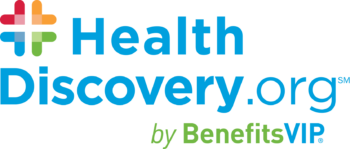Benefits & Health Insurance 101

Frequently Asked Questions (FAQs)
A brand-name drug is a prescription drug marketed under a certain name by the company that manufactures it. This is usually the company that develops and patents the drug. When patents run out, generic versions of drugs are often sold at a lower cost by other companies.
Generic drugs are less expensive, and most prescription and health plans encourage their use. Once a company’s patent on a brand-name prescription drug has expired, other drug companies are allowed to sell the same drug under a generic label.
Specialty drugs are high-cost prescriptions used to treat complex, chronic conditions like rheumatoid arthritis, multiple sclerosis, and cancer. These medications often require special handling and administration.
COBRA is the Consolidated Omnibus Budget Reconciliation Act of 1985. This federal law allows you to continue to purchase insurance for up to 18 months if you lose your job, or if your coverage is otherwise terminated. The law covers employers group of 20 or more employees.
Coinsurance is money you are required to pay for services after you pay your deductible. Coinsurance is often a percentage. For example, you might pay 20% toward the charges for a service, and the insurance company pays 80%.
Copayment is a flat fee you pay for healthcare services. This is in addition to what the insurance covers. For example, some plans require a $20 copayment for each office visit, regardless of the type or level of services provided during the visit.
Deductible is the amount you pay for healthcare expenses before insurance kicks in. Often, insurance plans are based on yearly deductible amounts.
Explanation of benefits is the insurance company’s written explanation regarding a claim, showing what they paid and what you must pay.
HIPAA allows you to qualify for comparable health insurance coverage if you change employment or relationships. (You have to pay for this coverage). It is also designed to protect your personal health information, how it is moved from one place to another, and who can see it.
In-network refers to providers or healthcare facilities that are part of your health plan’s network. You will usually pay less when using an in-network provider.
A lifetime maximum benefit is the maximum amount a health plan will pay in benefits to you during your life.
Long-term disability insurance pays you a percentage of monthly earnings if you become disabled.
Short-term disability insurance coverage is designed to protect your wages during a time of injury or illness (that is not work-related) and prevents you from working for a short time.
A network is a group of doctors, hospitals and other healthcare providers contracted to provide services to insurance company members (you) for less than their usual fees. Provider networks can cover a large geographic market or a wide range of healthcare services. You usually pay less for using a network provider.
Out-of-network (or out-of-plan) usually refers to physicians, hospitals or other healthcare providers who are considered “nonparticipants” in an insurance plan. Depending on your health insurance, the cost of service provided by out-of-network health professionals may not be covered, or only partly covered.
An out-of-pocket maximum is a predetermined limited amount of money you must pay before your insurance company will pay 100% for your allowable healthcare expenses.
A primary care provider is a healthcare professional (usually a physician) who is responsible for monitoring your health. Typically, a PCP serves as a “quarterback” for your medical care. This doctor can refer you to specialists, if necessary.
A reasonable and customary fee is the average fee charged by a particular type of healthcare practitioner within a geographic area. The term is often used by medical plans as the amount of money that will be approved for a test or procedure. If the fees are higher than the approved amount, you are responsible for paying the difference.











